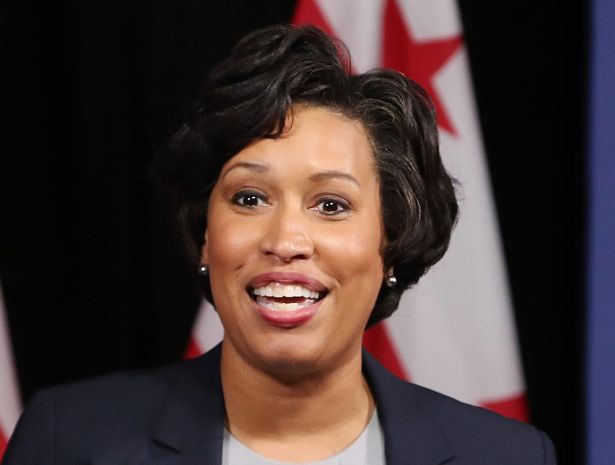
Muriel Bowser.
Muriel Bowser
Mayor, at District of Columbia

In mid-June, Muriel Bowser sent out a tweet inviting the nation to celebrate July 4 in the nation’s capital. “With all capacity limits and restrictions lifted, cultural attractions are open and hotels are ready to welcome you back,” she tweeted.
Six months earlier, she was doing the opposite, encouraging people to stay away from D.C. for Inauguration Day because of the double threat facing the District: a global pandemic and right-wing violence.
Those messages bracket the two extremes of an extraordinary year for the mayor and her city. Bowser was thrust into the national spotlight, first for her response in the wake of the George Floyd protests — the painting of “Black Lives Matter” across from the White House in a vivid criticism of President Trump — and, later, in the aftermath of the Jan. 6 insurrection.
Meanwhile, she was also managing the District’s response to the pandemic, with months of fluctuating restrictions and shutdowns, including an eviction moratorium; the vaccine rollout; and finally, the reopening. Like most of the country, D.C.’s economy suffered during the pandemic. Rents declined, small businesses shuttered, and unemployment rose. But, there is optimism that the worst is past.
In May, Bowser announced a $400 million commitment to the Housing Production Trust Fund, the city’s primary tool for financing affordable housing, and followed that up with a beefed up budget for fiscal year 2022, which came with increased funding for a variety of housing issues, including pandemic rental assistance, and investment in public and supportive housing.
The focus on housing is in line with Bowser’s previous efforts, including spearheading legislation to incentivize the construction of affordable housing in wealthy neighborhoods by offering tax abatements to developers who built multifamily assets there.
Over the next 12 months, Bowser will oversee a city emerging from crisis, with a new federal administration in town, and potentially a bid for D.C. statehood, an issue she’s already thrown her weight behind.
She’ll be doing it all while coming up for reelection. First elected in 2014, then again in 2018, she would be going for a third term if she chooses to run.



